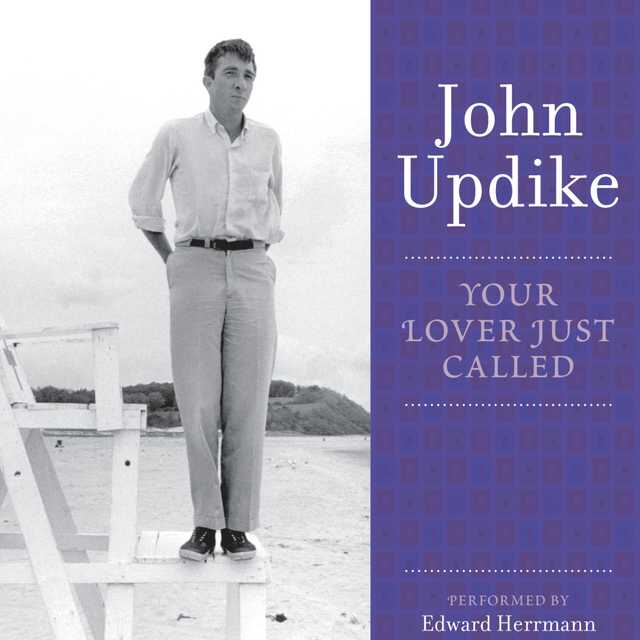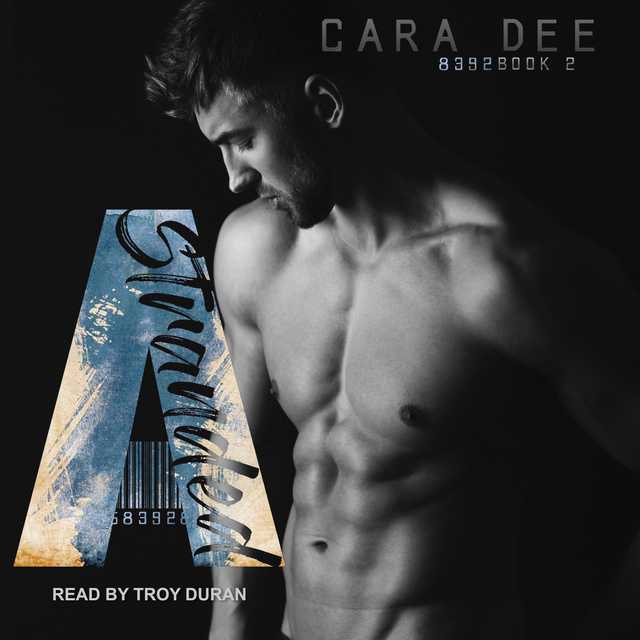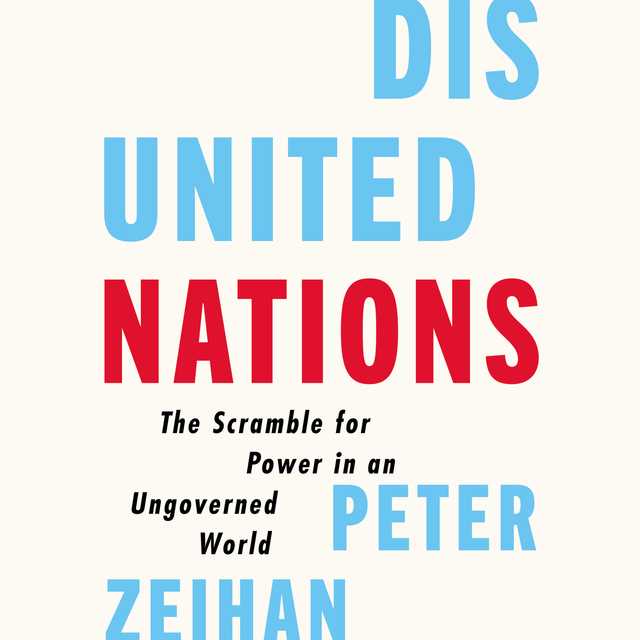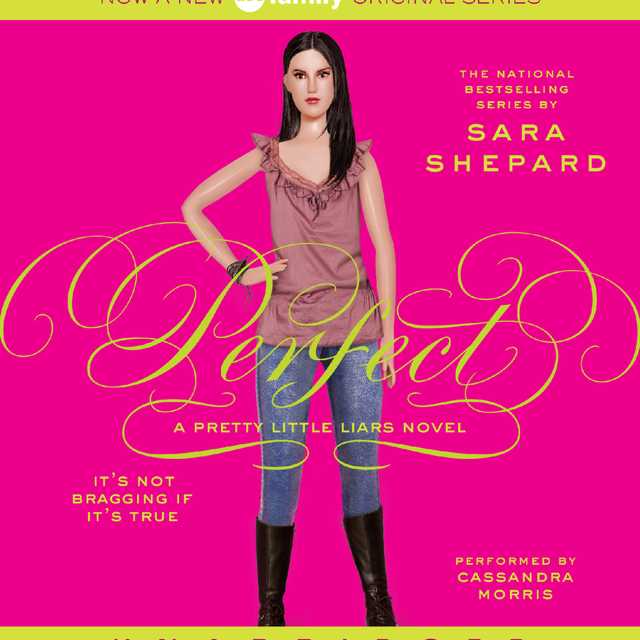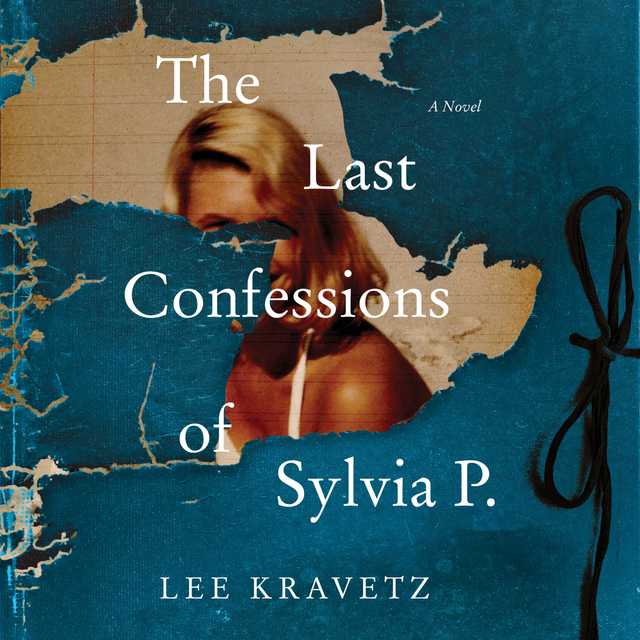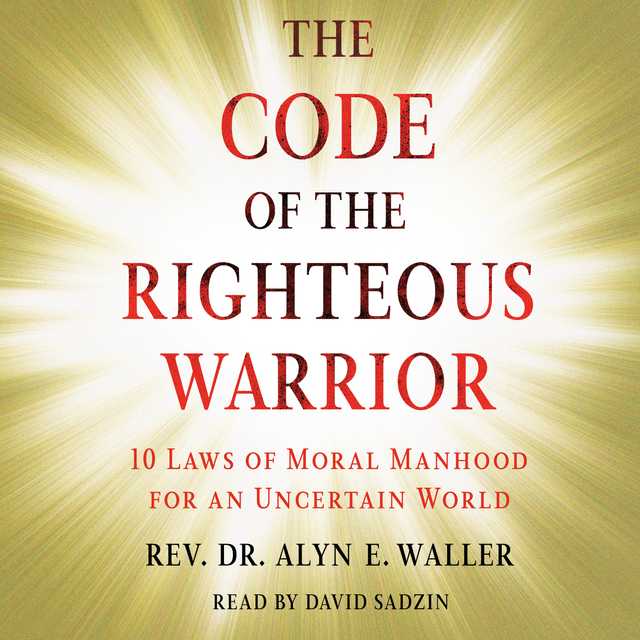Your Lover Just Called Audiobook Summary
The extraordinarily evocative stories depict the generation born in a small-town America during the Depression and growing up in a world where the old sexual morality was turned around and material comforts were easily had. Yet, as these stories reflect so accurately, life was still unsettling, and Updike chronicles telling moments both joyful and painful. The texts are taken from his recent omnibus, The Early Stories, 1953-1975.
In describing how he wrote these stories in a small, rented, smoke-filled office in Ipswitch, Massachusetts, he says, “I felt that I was packaging something as delicately pervasive as smoke, one box after another, in that room, where my only duty was to describe reality as it had come to me — to give the mundane its beautiful due.”
Other Top Audiobooks
Your Lover Just Called Audiobook Narrator
John Updike is the narrator of Your Lover Just Called audiobook that was written by John Updike
John Updike was born in 1932, in Shillington, Pennsylvania. He graduated from Harvard College in 1954, and spent a year in Oxford, England, at the Ruskin School of Drawing and Fine Art. From 1955 to 1957 he was a member of the staff of The New Yorker, and since 1957 has lived in Massachusetts. He is the author of fifty-odd previous books, including twenty novels and numerous collections of short stories, poems, and criticism. His fiction has won the Pulitzer Prize, the National Book Award, the American Book Award, the National Book Critics Circle Award, the Rosenthal Award, and the Howells Medal.
About the Author(s) of Your Lover Just Called
John Updike is the author of Your Lover Just Called
More From the Same
- Author : John Updike
- Couples
- Killing
- The Red-Herring Theory
- The Family Meadow
- The Centaur
- Publisher : Caedmon
- Dubliners
- Julius Caesar
- The Two Gentlemen of Verona
- The Tempest
- Measure for Measure
Your Lover Just Called Full Details
| Narrator | John Updike |
| Length | 17 minutes |
| Author | John Updike |
| Category | |
| Publisher | Caedmon |
| Release date | August 11, 2009 |
| ISBN | 9780061962554 |
Additional info
The publisher of the Your Lover Just Called is Caedmon. The imprint is Caedmon. It is supplied by Caedmon. The ISBN-13 is 9780061962554.
Global Availability
This book is only available in the United States.
Goodreads Reviews
John
June 28, 2022
John Updike: ethics and aesthetics of adulteryThis review looks at the following novels by John Updike: Marry Me, The Poorhouse Fair, The Centaur, The Complete Bech, The Maples Stories, Brazil, A Month of Sundays, In the Beauty of the Lilies, Seek My Face and a few of the essays in the collections Hugging the Shore and Odd Jobs. John Updike’s fiction is noted for its exploration of adulterous, though conventional, heterosexual relationships. Along with those other literary ‘titans’ and male-point-of-view novelists, Philip Roth and Saul Bellow, he dominated mid-late 20th century American literature. It is only relatively recently that all of these writers’ varying degrees of misogyny or chauvinism has been called to account, although all three are still read and much of the how or the style of what they wrote is still intriguing. In the case of Updike his Flaubertian dedication to the craft of writing is still honoured, and maybe also there is something Flaubertian in his elaboration of adultery as a literary theme.The first thing that strikes the reader of some of the early novels dealing with this theme, like The Centaur or Marry Me, is that Updike is very far from pursuing any kind of romantic treatment of adultery. Even in the later somewhat romantic novel Brazil, which teasingly reinterprets the classic romantic myth of Tristram and Isolde in its two young lovers Tristao and Isabel, we find they are fitfully unfaithful (and, at the end, are separated by death.) Updike’s anti-romanticism directs his criticism of other writers like Hemingway:Hemingway’s heroes make love without baring their bottoms, and the women as well as the men are falsified by a romantic severity, and exemption from odours and awkwardness that [Edmund] Wilson, with the dogged selfless honesty of a bookworm, presses his own nose, and ours, into such solemn satisfaction. Hugging the Shore 1984: 198In associating himself with Edmund Wilson’s approach to sex (in his novel Hecate Country), Updike is declaring himself by inclination anti-romantic. Truth to human life when exploring extra-marital sex is, for Updike, to be truthful to underlining the primary role of carnal instinctiveness in it. Adultery, betrayal, and the pursuit of sexual ecstasy are what Updike calls ‘that true life, the life of ecstasy and the spirits’ (Brazil 54). So the romantic is displaced by amour in Updike’s adulterous world, a world in which we experience a detailed, refined, literary erotic of fleshed, naked, cheating bodies. But ‘the spirits’ referred to at the end of this quote from Brazil indicates, also, that for Updike the pursuit of sexual ecstasy provokes in his characters spiritual reflections on guilt and questions of right and wrong. Sexual passion brings in its wake knowledgeability -much like Adam and Eve discovering an awareness of sin and shame at their nakedness. There is an aesthetic underpinning of this as well, seen across Updike’s novels, in which the stimulation of the flesh by desire, the material basis of human sexuality, provokes considerations of form, of representation. In his essays on Vargas Llosa and Saul Bellow Updike underlines how the two writers whilst writing about sex over-stress the materiality of the body - the spiritless fleshliness of flesh. Llosa’s In Praise of the Stepmother’s exploring its sexual theme to rigorous, materialist extremes, brings the reader up against the possible limits of his or her own commitment to sensuality. (Odd Jobs: 723). Similarly, in regard to Bellow’s Dean’s December Updike writes:And what Bellow does with human bodies! Visually seizing upon lumps of fat and hollows of bone and ridges of gristle no one has ever put into words before, he makes of each body a kind of physical myth, a flesh-and-blood ideogram. (Hugging the Shore 260)In contrast, the aesthetic and ethical are simultaneous dimensions of sexual desire in Updike’s adultery novels. This is seen in, for example, Seek My Face where the elderly famous artist Hope Chafetz (associated with a Jackson Pollock-like figure) becomes excited by the body of her young interviewer. She finds herself particularly fascinated by the septum of the young woman’s nose in which she ‘glimpses’ the ‘live creatureliness [that] brings the girl’s other features up into a feral glory’ (188). In The Poorhouse Fair Updike again focuses on the septum, this time of the dead flesh of the lying-in-state patriarchal figure of Mendelssohn:Perfectly preserved his blind lids stretch above the crumbled smile. The skin that life has fled is calm as marble. Can we believe, who have seen his vital nostrils flare expressively, revealing in lifting the flaming septum, the secret wall red with pride within, that there is no resurrection? That bright bit of flesh; where would such a thing have gone? (The Poorhouse Fair 155)There is much direct discussion about right and wrong, about religion and doubt(ers) in Updike’s novels. The advice that Dreaver, the Presbyterian moderator in In the Beauty of the Lilies, gives to the doubt-ridden minister Clarence is that The soul needs something extra, a place outside of matter where it can stand (79). But Updike does not mean by this some type of Platonic spirit realm but rather an accepting of the body as a means to, or an element in, the experience of ensoulment. So, early in this novel Updike describes how Clarence’s doubts coincide with a loss of a proportionate sense of things: Without Biblical blessing the physical universe became sheerly horrible and disgusting. All fleshly acts became vile, rather than merely some. The reality of men slaying lambs and cattle, fish and fowl to sustain their own bodies took on an aspect of grisly comedy – the blood-soaked selfishness of a cosmic mayhem. (7) Clarence is a sympathetic figure because in Updike’s view a loss of faith leads to questioning and reflection on petrifying morals, and when it’s stimulated by passion so much the better. This is clearly, almost baldly, stated in the more lightly Doubting Thomas figure of Masefield, a lusty priest (having parallels with Greene’s similarly ethically ambiguous ‘whiskey priests’) in A Month of Sundays. Ethicality is not, then, found abstractly outside of materiality, of the flesh, of ecstasy or the mundane. This is personified in The Poorhouse Fair, by the contrasting figures of Hook, the irascible elderly incumbent of the old people’s home, and Connor, the Prefect/administrator who takes over the reins after Mendelssohn. Connor is shown to be a humanist and prone to making mistakes – he is a very human figure (much like the self-deprecating George Caldwell in The Centaur). Sceptical, Connor likens the abstract idea of God to ‘a hollow noun’ (99), he is a religion-doubting figure in contrast to the religious and strongly opinionated, censorious Hook. Hook’s complaining and rebelliousness against the post-Mendelsohn order at the home incites the other residents to ‘stone’ Connor at the fair. But through this experience of pain and ridicule Connor is shown attaining spiritual knowledge:The shock of the incident this afternoon had ebbed enough for him to dare open the door which he had slammed on the fresh memory. A monster of embarrassment, all membrane, sprang out and embraced him. The emotion clung to him in disgusting glutinous webs, as if he were being born and fully conscious. (135)But, for Hook, in contrast, ‘Providence strikes. Virtue is a solid thing, as firm and workable as wood’ – he is a character of habit who cannot reflect and therefore cannot change. (98)When Updike’s Couples was published he became associated with the permissive ‘swinging’ Sixties. But his novels of adultery are not peopled by randy, wife-swopping, thoughtless ‘swingers’. In the novel Marry Me (ironically, I think, subtitled ‘A Romance’) Updike explores how adultery and unfaithfulness, makes Jerry and Sally extremely conscious of right and wrong – they are continually making choices about whether or not to continue their affair. At one point in the novel Updike keenly compares their position of fevered moral questioning to ‘the only place where there is no choice is in paradise’ (167). Updike consciously distanced himself from the commodified, tread-mill of Sixties sexual liberation, seen in his essay on Vargas Llosa:Without a surrounding society to defy, adulterous passion often wilts, and a daring elopement sinks into ranch-house funk of socially approved marriage. Sixties-style sexuality, with its hot tubs and bustling crash pads, was on to something; promiscuity, at least until it turns into a quasi-religious, obligatory form of exercise, suits our interior multiplicity. (Odd Jobs 725)Against mindless sex Updike also makes a more elaborate claim that there is to be found a kind of resurrectionary force derived in the always risky ‘commitment’ to committing adultery. In A Month of Sundays the over-sexed Thomas Masefield may be something of a unreliable narrator in his diaries that dominate the narrative, but I don’t think Updike is being ironical when Masefield makes the following theological point about adultery:Adultery, my friends, is our inherent condition: ‘Ye have heard that it was said by them of old time, Thou shalt not commit adultery: But I say unto you, That whosoever looketh on a woman to lust after her hath committed adultery with her already in his heart’. But who that has eyes to see cannot so lust? Was not the First Divine Commandment received by human ears, ‘Be fruitful and multiply’? Adultery is not a choice to be avoided; it is a circumstance to be embraced. (44-45)(See, also, how this Biblical quotation ‘parches’ Clarence’s throat when he delivers it in his sermon in In the Beauty of Lilies 52) Masefield’s reflections on adultery baldly address theological questions that are usually more subtly treated in the early novels like Marry Me or The Centaur. It is well-known that later in life Updike took up Barth’s theology, and the idea of ‘sympathy’ as the basis of faith. I don’t think it is a coincidence that this interest might be related to how Barth faced a witch-hunt by the Church when his long-standing extra-marital relationship came to light. So, Masefield ruminates:Dear Tillich, that great amorous jellyfish, whose faith was a recession of beyond with thee two flecks in one or another pane: a sense of the word as ‘theonomous’, and a sense of something ‘unconditional’ within the mind. Kant’s saving ledge pared finer than a fingernail. Better Barth, who gives us opacity triumphant, and bids us adore; we do adore, what we also live in the world is its residue of resistance – these mortal walls that hold us to this solitude, the woman who resists being rolled over, who is herself. (192)This Barthian-type attitude is also often accompanied by the adoption of animistic/Lawrentian tropes in Updike’s novels. In the epigram to The Centaur Barth is quoted by Updike:Heaven is the creation inconceivable to man, earth the creation conceivable to him. He himself is the creature on the boundary between heaven and earth. This novel is page-by-page infused with references to the complex- ambiguous figures of classical mythology. And so at school George Caldwell’s son is conscious of being ‘the petty receptacle of a myth’ that is spun around his late father. Early in the novel George is seen flirting with Vera Hummell in the school changing rooms where she likens him to a centaur, and he reflects that ‘His nether half, an imperfect servant of his will, preened itself’ (25). Animism also crops up in the Maples stories. We find Richard Maples out one early morning in open countryside. Taking the wilderness as an opportunity:Richard took off his clothes, all; he sat on a rough worm rock. The pose of thinker palled. He stood and at the water’s edge became a prophet, a Baptist; ripples of light reflected from the water onto his legs. He yearned to do something transcendent, something obscene… (104)Animism informs Updike’s regular literary alternative spins on physics when describing the context of his characters’ actions. In the Maples stories Richard takes a sceptical stance on arguments about the world based on Newtonian and Einsteinian physics (135-6). And in the late novel, Villages, Updike has the intuitively pragmatic Owen call the mathematical logic of Frege and Russell ‘creepy’ (82). Similarly, in Seek My Face a contrast is found between the ‘soul’s expectations and bottomless appetite to the measured world of science and matter’ (65). But, of course, it is really human sexual agency in Updike’s fictional world that is the prime shaper of the human very earthly experience of time and space - seen in A Month of Sundays where sexual attraction is described as something that ‘curves space and time’ (125). And in Marry Me we find:The world is composed of what we think it is; what we expect tends to happen; and what we expect is really what we desire. As a negative wills a print, she had willed Sally. 133 (Updike, though, will give physical determinants of human behaviour its due – for example, in Brazil, where we find the henchmen’s:…two guns had, like pencils, redrawn the space of the room, reducing the finitude of possibilities to a few shallow tunnels of warped choice. Their spirits had all become very thin, walking the taut wires of the situation. (63)Similarly, in the short story ‘Unstuck’, the snow-bound Mark hears his wife’s words ‘”If you are young” come to him faint and late, as if, because of the warping after-effect of the storm sound crossed the street from her side against the grain.’I have dug these rather abstractly-stated ideas out of a range of Updike’s singular (i.e. not the series of ‘Rabbit’ Angstrom novels) novels. But I read them in the sway of Updike’s compelling literary prose. Yes, Updike always wrote ‘like a man’s man’, he was a writer of his time and place (reacting against the ingrained moral conservatism of 50s America – no small thing to do), and very few people now read him because the position he puts the reader into identifying with is, on the whole, probably politically incorrect. But the prose remains, despite so much of its content and positioning of the reader, and one cannot help but admire it for the way it conveys Updike’s ideas, how it makes us reexperience our understanding of human relationships in provoking, original, and always interesting ways. Updike revels in the detail, the minutiae of the human world and its physical – generally suburban America - and natural contexts, so apparently effortlessly and yet what must have been the result of a concentrated Flaubertian-dedication to the production of literary prose. Updike regularly refers to the impressionists and other artists when describing moods, places, skies and nature. It is said that he wanted to be a painter, and his prose is often deeply pointillist in its detail. But there is also an unabashed emotive-impressionist colouring to this detail. Updike might be described as a writer in the genre of realism because his detailed prose creates mood, contextualizes the ‘action’ and underwrites our identification with his particular ‘truths to life’. But Updike is not a realist, and rejected a realist conception of ‘representation’, as is seen in the aesthetic discussions n Seek My Face:This so-called ‘aesthetic’, he stated in his rather, high, affected voice, honed on years of education, Stanford and Columbia and with some English vowels picked up from a post-grad year in Oxford, concentrating not in art but in philosophy, back to the Greeks, back to ontology, ‘is merely the sensuous aspect of the world – it is not the end of art but a means, a means for egging at, let’s call it, the infinite background of feeling in order to condense it into an object of perception, These objects of perception are basically relational structures, which obliterate the need for representation.’ (Seek My Face 44)In all probability Updike’s literary legacy will not be as a writer concerned with adultery in late 20th century America, but as one of the great writers of novelistic prose. In the Bech novellas Updike has his alter-ego, the writer Bech, consciously reflect on the process and aesthetics of writing and of being a writer. When Bech states that ‘actuality is a running impoverishment of possibility’ (The Complete Henry Bech 58) it is hard not to think that Updike is, glancingly, referring to Saul Bellow’s concern with ‘actuality’ and with all de-spirted conceptions of reality. Bech’s thinking:[…]as Valery had predicted, did not come neatly, in chiming packets of language, but as slithering, overlapping sensations, micro-organisms of thought setting up in sum a panicked seat on Bech’s palms and a palpable nausea behind his belt. (89).
Most Popular Audiobooks
Frequently asked questions
Listening to audiobooks not only easy, it is also very convenient. You can listen to audiobooks on almost every device. From your laptop to your smart phone or even a smart speaker like Apple HomePod or even Alexa. Here’s how you can get started listening to audiobooks.
- 1. Download your favorite audiobook app such as Speechify.
- 2. Sign up for an account.
- 3. Browse the library for the best audiobooks and select the first one for free
- 4. Download the audiobook file to your device
- 5. Open the Speechify audiobook app and select the audiobook you want to listen to.
- 6. Adjust the playback speed and other settings to your preference.
- 7. Press play and enjoy!
While you can listen to the bestsellers on almost any device, and preferences may vary, generally smart phones are offer the most convenience factor. You could be working out, grocery shopping, or even watching your dog in the dog park on a Saturday morning.
However, most audiobook apps work across multiple devices so you can pick up that riveting new Stephen King book you started at the dog park, back on your laptop when you get back home.
Speechify is one of the best apps for audiobooks. The pricing structure is the most competitive in the market and the app is easy to use. It features the best sellers and award winning authors. Listen to your favorite books or discover new ones and listen to real voice actors read to you. Getting started is easy, the first book is free.
Research showcasing the brain health benefits of reading on a regular basis is wide-ranging and undeniable. However, research comparing the benefits of reading vs listening is much more sparse. According to professor of psychology and author Dr. Kristen Willeumier, though, there is good reason to believe that the reading experience provided by audiobooks offers many of the same brain benefits as reading a physical book.
Audiobooks are recordings of books that are read aloud by a professional voice actor. The recordings are typically available for purchase and download in digital formats such as MP3, WMA, or AAC. They can also be streamed from online services like Speechify, Audible, AppleBooks, or Spotify.
You simply download the app onto your smart phone, create your account, and in Speechify, you can choose your first book, from our vast library of best-sellers and classics, to read for free.
Audiobooks, like real books can add up over time. Here’s where you can listen to audiobooks for free. Speechify let’s you read your first best seller for free. Apart from that, we have a vast selection of free audiobooks that you can enjoy. Get the same rich experience no matter if the book was free or not.
It depends. Yes, there are free audiobooks and paid audiobooks. Speechify offers a blend of both!
It varies. The easiest way depends on a few things. The app and service you use, which device, and platform. Speechify is the easiest way to listen to audiobooks. Downloading the app is quick. It is not a large app and does not eat up space on your iPhone or Android device.
Listening to audiobooks on your smart phone, with Speechify, is the easiest way to listen to audiobooks.

